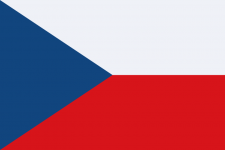
This report is based on a qualitative study commissioned by the Ministry of Labour and conducted by UNHCR and the International Organization for Migration (IOM) from March - April 2024. The aim of the study was (1) to consider and verify the reasons why residents remain in collective accommodation facilities instead of moving to regular housing, (2) to identify solutions for transitioning to regular housing, and (3) to formulate recommendations for the Ministry of Labour and Social Affairs and other Czech public institutions, which would serve as a basis for proposing social support and other assistance that can facilitate the safe and dignified relocation of residents from collective accommodation facilities to regular housing.
Methodology
The study included semi-structured interviews and focus groups with representatives of NGOs, local, regional, and national authorities, and Ukrainian holders of temporary protection in collective accommodation facilities. Information was collected anonymously with participants' consent and supported by analysis of publications and statistics, providing an overview of the situation of Ukrainian temporary protection holders in the Czech Republic.
Interviews with key informants provided practical insights into supporting Ukrainian holders in their transition to regular housing and informed the development of possible solutions. These solutions were presented to Ukrainian temporary protection holders in focus groups to determine their preferences and create alternative solutions where needed. After each focus group, participants completed an anonymous questionnaire, with results displayed in infographics.
The study identified 4 target groups: NGO representatives, regional coordinators, representatives of national and local authorities, and independent experts in social housing. Additionally, 9 group discussions were held with 114 Ukrainian temporary protection holders in collective accommodation facilities, across seven regions. Specific accommodation facilities were chosen considering the presence of vulnerable groups among Ukrainian temporary protection holders, such as women and single mothers, individuals aged 60+, people with certain health conditions, low-income individuals, and those living in remote locations.
Main Findings
The study shows that the continued residence of Ukrainian temporary protection holders in collective accommodation facilities is influenced by both structural and individual factors. Structural factors include the role and responsibility of governmental institutions, the need for clear and timely communication, and ensuring access to social services and counseling. Maintaining a network of collective accommodation facilities that meet established standards and are regularly monitored to ensure adequate conditions is also crucial. Another key finding is the need to address the rental housing market situation and provide alternative financial support to prevent debt, exploitative labor, social exclusion, and homelessness.
Individual factors include psychological difficulties associated with moving to regular housing, fear of the unknown, and a preference for the continuation of current living conditions and community. The ability to move to regular housing depends on income, employment status, knowledge of the Czech language, disability, age, family size, and support from state services or informal networks. The financial situation of many temporary protection holders is dire, particularly those working in low-paying jobs that do not match their qualifications.
Recommendations
Key recommendations respond to the main findings and recognise the need to tailor assistance to 3 specific groups of temporary protection holders: vulnerable residents with complex issues, self-sufficient residents with low incomes or less complex problems, and residents with no motivation to relocate or integrate. Legislation should be accompanied by information campaigns and coordinated roles of relevant ministries, including the Ministry of Labour and Social Affairs.
Advisory and community support programmes for affected Ukrainian temporary protection holders are recommended, combined with tools tailored to specific situations and groups. To address financial barriers, the report recommends adjusting the humanitarian allowance and implementing measures to reduce debt. It further recommends that incentives for property owners to rent to Ukrainian temporary protection holders also be supported, particularly in regions less affected by the housing crisis.
Details
- Authors
- IOM Czechia
- Geographic area
- Czech Republic
- Contributor type
- International organisation
- Original source
- Posted by
